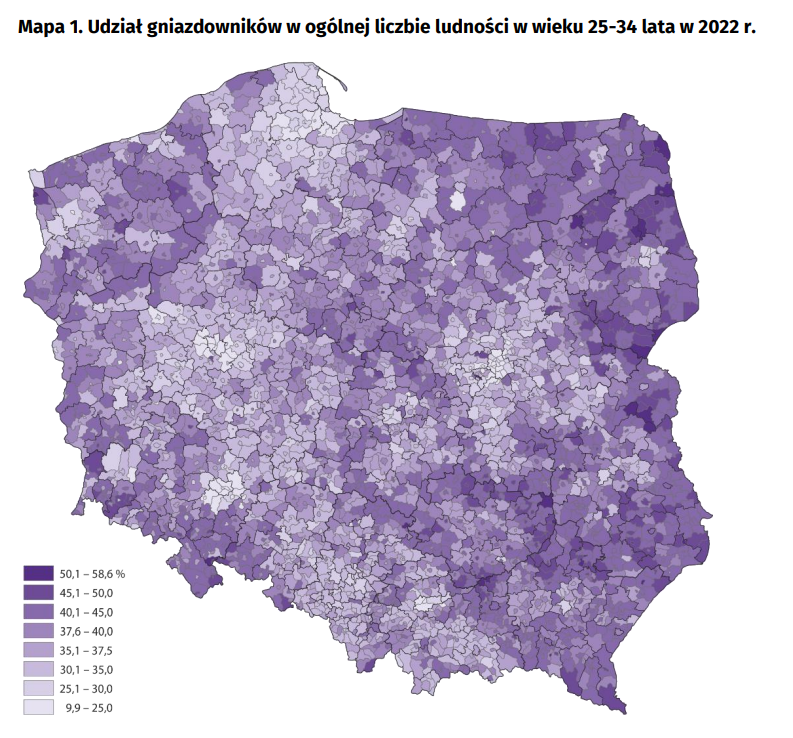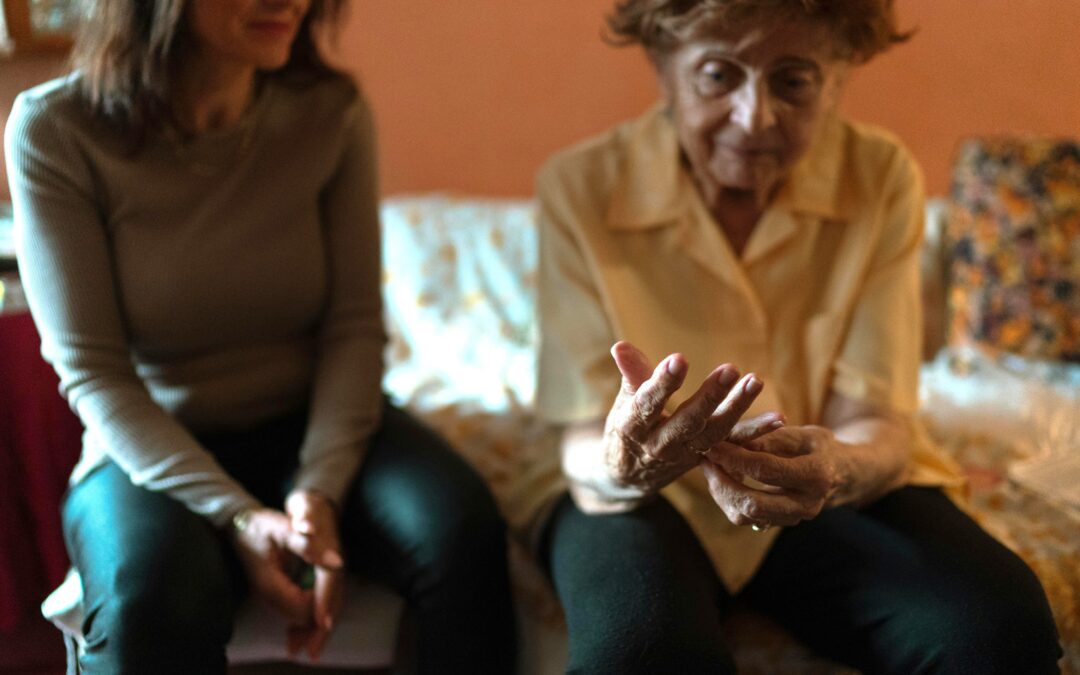One third of Poles aged 25-34 who have not yet started their own family live with their parents, new data from the state agency Statistics Poland (GUS), shows. The majority of those are men.
GUS’s figures, from 2022, show that there are 1.7 million such people living with their parents, or 33% of all those aged 25-34. Compared to 2018, that is a fall of three percentage points and 300,000 people.
The agency’s figures do not include young people who are married, divorced, widowed or have children and live with their parents.
Zachęcamy do zapoznania się z #PublikacjaGUS, w której znajdziesz charakterystykę osób w wieku 25-34 lata mieszkających z rodzicami (gniazdowników), m. in. zróżnicowanie terytorialne, wykształcenie i niepełnosprawność.https://t.co/OZwQzojbup#GUS #statystyki pic.twitter.com/sGIowNEbw6
— GUS (@GUS_STAT) July 2, 2024
The proportion of young single people living with their parents varies greatly by gender. Among the 1.7 million living with their parents, almost two thirds (63%) are men.
Gender disparities increase with age, too: among 25-year-olds, there are 136 men living with their parents for every 100 women; in the case of 34-year-olds, the figure increases to 202 men for every 100 women.
According to GUS, there are 659 municipalities (over a quarter of the total number in Poland) where at least half of young men have not started a family and live with their parents, while there was only one municipality in the whole country (Podkowa Leśna in Warsaw’s suburbs) where the same was true for women.
The highest percentage of young adults – both men and women – living with their parents was recorded in the provinces of Świętokrzyskie (41%), Subcarpathia and Lublin (39% each), all of which are located in Poland’s relatively poorer southeast.

Map showing the proportion of 25- to 34-year-olds living with their parents in districts across the country (source: GUS)
The lowest were recorded in Lower Silesia (29%), Masovia and Pomerania (both 28%). Among provincial capital cities, the lowest proportion of young people living with parents was recorded in Wrocław (18%) and Warsaw (19%) and the highest in Kielce (36%) and Olsztyn (32%).
Just over 6.6% of young Poles living with their parents are students. This percentage decreased with age, from 19% for 25-year-olds to less than 2% among 34-year-olds. Young women living with their parents are more likely than men to be studying (8.6% vs 5.4%).
The majority of young Poles living with their parents (63%) are working and only 6% are looking for employment. Among men living with their parents, 65% have a job and 7% are looking for one, while among women the figures are 60% and 6% respectively.
Nearly 6% of the young people living with their parents, 102,000 people in total, have disabilities.
Sorry to interrupt your reading. The article continues below.

Notes from Poland is run by a small editorial team and published by an independent, non-profit foundation that is funded through donations from our readers. We cannot do what we do without your support.
Figures published last year by Eurostat, the EU’s statistical agency, indicated that over half of young people in Poland aged 25 to 34 live with their parents. However, those figures, unlike GUS’s, do not exclude people who are married, divorced, widowed or have children.
Poland’s figure was the fourth highest in the EU, underlining the problem young Poles face in finding affordable housing. Estimates of Poland’s housing shortage vary, from around 650,000 units, according to the development ministry, to as much as 4 million units, according to Pekao, a bank.
The previous Law and Justice (PiS) government responded to the housing problems of the young by launching a mortgage subsidy programme for first-time buyers. While the programme was extremely popular, it also is seen to have contributed to Poland experiencing Europe’s fastest increase in housing prices.
The programme ended at the turn of the year and the new coalition government that replaced PiS in December is considering introducing its own mortgage subsidy programme, potentially next year.
Poland recorded the EU's largest increase in house prices in the final quarter of last year.
They were up 13% on a year earlier, compared to a rise of just 0.2% across the EU as a whole https://t.co/rIrFsNjsbi
— Notes from Poland 🇵🇱 (@notesfrompoland) April 23, 2024
Main image credit: Andrea Piacquadio / Pexels

Alicja Ptak is deputy editor-in-chief of Notes from Poland and a multimedia journalist. She has written for Clean Energy Wire and The Times, and she hosts her own podcast, The Warsaw Wire, on Poland’s economy and energy sector. She previously worked for Reuters.



















